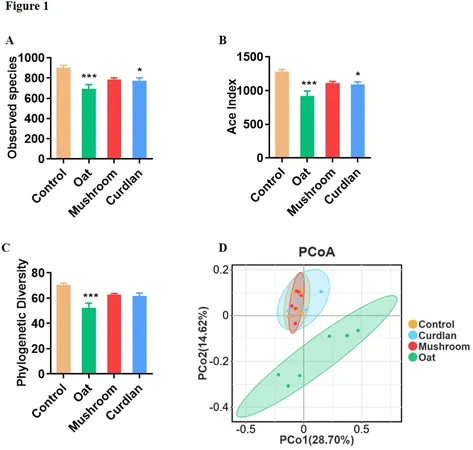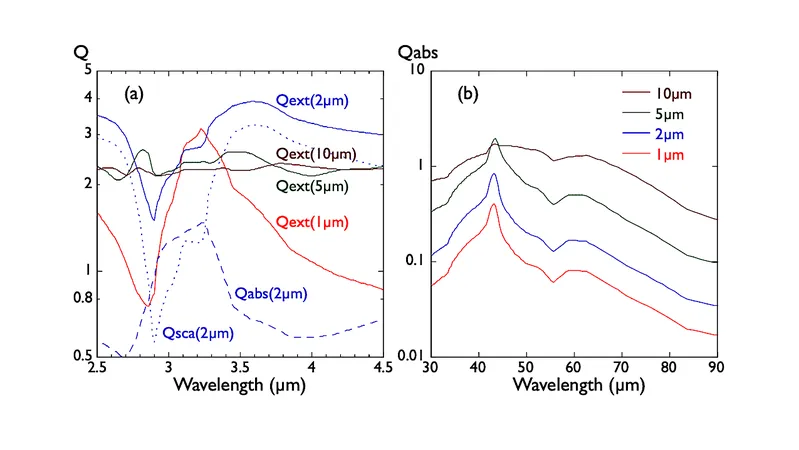
COVID Can Age Your Blood Vessels by Five Years—Especially for Women!
2025-08-18
Author: John Tan
A Troubling Discovery About COVID's Impact
New research published in the European Heart Journal reveals a startling truth: a COVID-19 infection can age blood vessels by approximately five years, particularly affecting women more significantly than men.
Why It Matters
As we age, our blood vessels naturally become stiffer, which raises the risk for serious cardiovascular issues like heart attacks and strokes. This study suggests COVID could turbocharge this aging process, adding urgency to understanding its long-term effects.
The Study's Origins
Led by Professor Rosa Maria Bruno from Université Paris Cité, France, researchers enrolled 2,390 participants from 16 different countries. They were categorized based on their COVID infection history, ranging from no infection to ICU hospitalization.
Measuring the Damage
Using a sophisticated device to measure carotid-femoral pulse wave velocity (PWV), the researchers assessed how quickly blood pressure waves traveled through artery walls. This method highlights the stiffness of blood vessels: the higher the PWV, the greater the vascular aging.
Shocking Findings About Women
All patient groups who had COVID showed stiffer arteries compared to those who were uninfected. Notably, the effect was pronounced in women, especially those experiencing long COVID symptoms like fatigue and breathlessness.
The Impact of COVID Severity
Women with mild COVID infections experienced an increase in PWV of 0.55 meters per second. This figure jumped to 1.09 in those requiring ICU care—equivalent to aging around five years and implying a 3% higher risk of cardiovascular disease for a 60-year-old woman!
Vaccination Matters!
Interestingly, vaccinated individuals displayed less arterial stiffness compared to their unvaccinated counterparts. Over time, the vascular aging associated with a COVID infection appeared to either stabilize or even improve slightly.
Possible Reasons Behind the Findings
According to Professor Bruno, the root causes may lie in how the COVID-19 virus interacts with our body's systems, including crucial receptors on blood vessel linings. These interactions could result in lasting vascular damage.
Protective Responses and Gender Disparities
The research also notes that the differences between men and women could stem from how robustly their immune systems respond to the virus. Women's quicker immune response could paradoxically increase vascular damage post-infection.
What Can Be Done?
Measuring vascular aging can guide interventions through lifestyle changes and medications aimed at reducing blood pressure and cholesterol. For those experiencing accelerated vascular aging, early intervention is key to preventing serious heart complications.
The Road Ahead
Professor Bruno and her team will continue to monitor participants to determine if accelerated vascular aging leads to increased heart attack and stroke risks in the future.
A Broader Issue Post-COVID
Dr. Behnood Bikdeli from Harvard Medical School emphasized that while the immediate pandemic threat has lessened, the challenge of post-acute COVID-19 syndrome remains. Up to 40% of COVID-19 survivors report lingering symptoms months after recovery.
This extensive study indicates that COVID-19 has lasting effects on our vascular health, particularly in women. Understanding and addressing these changes is vital for current and future health care strategies.






 Brasil (PT)
Brasil (PT)
 Canada (EN)
Canada (EN)
 Chile (ES)
Chile (ES)
 Česko (CS)
Česko (CS)
 대한민국 (KO)
대한민국 (KO)
 España (ES)
España (ES)
 France (FR)
France (FR)
 Hong Kong (EN)
Hong Kong (EN)
 Italia (IT)
Italia (IT)
 日本 (JA)
日本 (JA)
 Magyarország (HU)
Magyarország (HU)
 Norge (NO)
Norge (NO)
 Polska (PL)
Polska (PL)
 Schweiz (DE)
Schweiz (DE)
 Singapore (EN)
Singapore (EN)
 Sverige (SV)
Sverige (SV)
 Suomi (FI)
Suomi (FI)
 Türkiye (TR)
Türkiye (TR)
 الإمارات العربية المتحدة (AR)
الإمارات العربية المتحدة (AR)